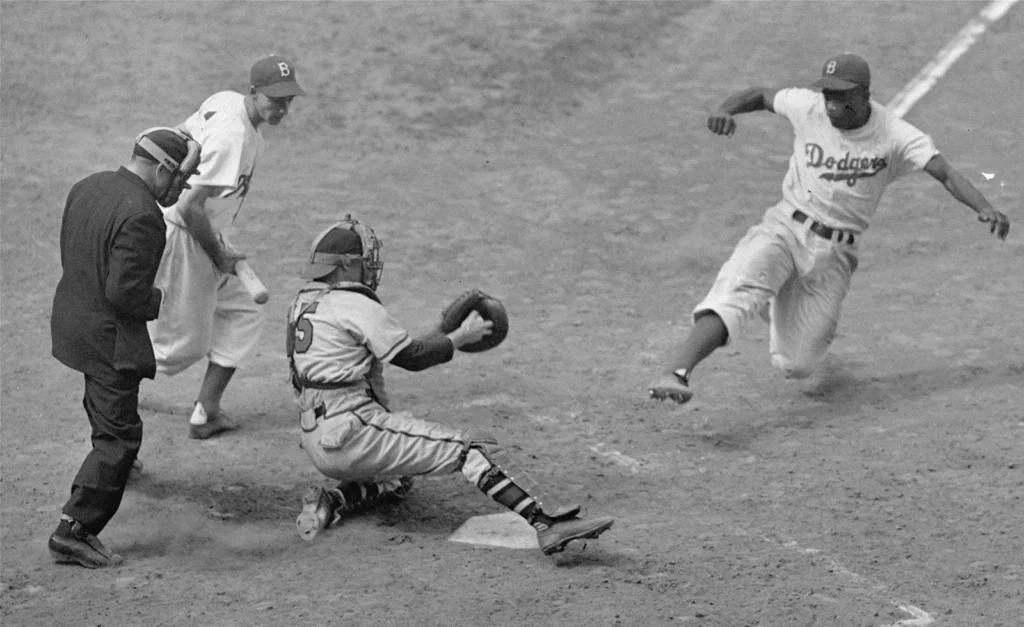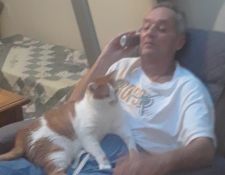
We have memories, like flashes of lightning from afar- now we see them, now we don’t. Yet, one can almost call upon them at will, these bits and pieces of our lives, once so vivid, once so real, filed forever as nostalgia. So it is for me, 60 plus years after the fact. Brooklyn, circa 1955, was truly a special place. Those who did not live or come from Brooklyn told us that we were only a part of New York City- admittedly a large part, but a part. What did they know!? After all, to Brooklynites, who in the hell would brag about being from Manhattan or Queens or Da Bronx? No, they were all wrong. Brooklyn was a city, a world onto itself… and everyone knew it!
I was born in Bensonhurst; actually I was born in Bay Ridge Hospital, located in the (duh!) Bay Ridge section of Brooklyn, as different from Bensonhurst as Toledo is from Cleveland. Bay Ridge was home to countless Scandinavians; with more blondes per square block than perhaps all the other neighborhoods combined… did I say neighborhood! Now that’s worth exploring. You see, Brooklyn was this great expanse of land, inhabited by little villages we called neighborhoods, with Native American, Dutch and English names. Places like Flatbush (containing Ebbets field, where the Dodgers played), Kings Highway, Sheepshead Bay, Coney Island (you all heard of Nathan’s and the Cyclone roller coaster?), Bedford Stuyvesant, Brownsville (former home of Murder Incorporated), Greenpoint, Williamsburg, Canarsie, Dyker Heights, the aforementioned Bay Ridge… and finally Bensonhurst, where my family resided. This was a working class community, accented by mostly two family brick homes, replete with landlord and tenant (not much “absentee ownership” in those days, thank heavens). There were also four and six story apartment houses scattered about, mainly rent controlled by the city.
Bensonhurst, a mostly Jewish and Italian American neighborhood, with a smithering of other ethnic groups blended in, was almost 100% white. The only black people we would see were the seltzer man’s helper delivering heavy cases up the stairs, various cleaning women (for those few families lucky enough to afford such a luxury), and the janitors – that was it! I still remember walking with my mother, at the corner of Avenue P and Dahill Rd., when this lone black man approached. Suddenly, she tightened her grip on my hand, pulling it closer to hers, and kept it there until the man had passed us. Thus, I learned that all colored men (as they were referred to in the 50’s), were to be both avoided and looked upon with caution… until, that is, I discovered baseball, and Jackie Robinson.
NYC was the baseball capitol of the world in 1955. We had not one, not two, but three major league teams. I should clarify that statement. They, the rest of the city, had the Yankees and the Giants….. we, Brooklyn, had but one team: Dem Bums, the Dodgers! For all the decades of their existence, the Dodgers never once won a World Series. The Yankees won it seemingly all the time; even the hated Giants had just won the World Series the year before (1954). The Yankees had Yankee stadium, the “House that Ruth built”, seating over 70,000, and the Giants the massive Polo Grounds, where a fellow could get lost in left center field. Brooklyn had but tiny Ebbetts Field, a bandbox of a place that could squeeze perhaps 40,000 diehards into it. Who cared! With the blue “Dodgers” scripted across their white linens, and that lone white “B” atop their royal blue cap, Dem Bums could conquer the world….. Or at least try.
So, we kids would be out there on the sidewalk after kindergarten, or on Saturday mornings, playing catch. We all wore our Dodger caps and clutched little baseball gloves, each portraying our own hero. Johnny Molinari would be Duke Snyder, center fielder, and Roy Edelstein becoming Gil Hodges, first baseman. Another kid would be Pee Wee Reese, shortstop, and always some crazy Yankee lover would be Mickey Mantle, Yankee center fielder. And me, well… I would be Jackie Robinson, Dodger second baseman. Being 5 year olds, we didn’t know at the time that Jackie Robinson was special, being the first Negro baseball player allowed to play in Major League Baseball. Who knew and who cared to we little kids? Jackie was simply # 42, who played the infield and could steal bases. And I loved him!
I recall now, as if it were yesterday, my first tryout with the Little League. My dad, a longshoreman and part-time bookmaker, made a deal with the head of the Davy Crockett Little League. The league president received a pass on a bet owed and I got to join Little League a year early, at age six. So here I was at the tryout, inside our elementary school gym. Perhaps a hundred of us were there, fielding ground balls, throwing, and running the bases. I was a fast kid, and soon found myself in a prolonged rundown between first and second bases. Finally, I faked one way, quickly pivoted in the other direction and avoided the coach’s tag with a beautiful slide. Someone yelled out “We gottanuda Jackie Robinson here!” That was enough for me. Although they didn’t have a # 42, whenever I ran the bases or had to slide, I was Jackie!
Days and months flow into years. By ’58 the Dodgers were gone to La La land and we had to wait until 1962 and the arrival of the Mets. I grew up, graduated Brooklyn College, got married, had kids, and got divorced…. well you know how that goes? Then ’97 came around. I was living in Indianapolis at the time. On NPR (National Public Radio) they were having a tribute for the 50th anniversary of Jackie’s breaking into the Majors. Someone was being interviewed about what Jackie had to go through at that time – things we 5 year olds never knew until years later. An anecdotal story that followed seemed to parrot what has defined me my entire life. The Dodgers were on the road, playing either the Phillies or the Reds, I forget. It didn’t matter, because both of those teams had more than their share of racists – goodness, even the Dodgers had them! On the day in question, the bigots were in rare form. As the Dodgers were going through their pre game infield practice, some bench jockeys from the home team were spewing unbelievable vulgarities at Jackie. Playing second base, in close proximity to the other team’s bench, Jackie could not help but be overwhelmed by the profanities. They questioned his manhood, his sexuality, his wife and family…. nothing was spared that day. As the story goes, when it was time for the Dodgers to return to their own bench, Jackie was boiling! Though he had gone through this kind of thing many times, this day the assaults were “crossing the line”. Jackie, when he signed with Brooklyn in ‘ 47, had given his word to Branch Rickey, the Dodger General Mgr. The agreement was that he would never once respond either physically or verbally to any racist attacks on his person. Rickey knew that Jackie, a college graduate and veteran army officer, had a certain sustenance that many men, regardless of race, could not or would not summon up, that inner resource to ‘take it’. What occurred next became the stuff of legends, forever touching any sensitive heart. The Dodger shortstop and captain, Pee Wee Reese, being a Louisville native, grew up in a Jim Crow world of ‘whites only’ segregation. He had reservations, and acknowledged them after Jackie’s signing, that this might not be such a great idea. Yet, to Pee Wee, once any player was dressed in Dodger blue, he became part of one team, and deserving of the same respect. So, the taunting continued, and as the players were called in, Pee Wee Reese suddenly scampered across the mound. He caught up with Jackie in full view of the gang of bench jockeying racists, and quickly put his hand around his second baseman’s shoulders, as they walked in together! The poignancy of that moment still brings tears to this writer.
Jackie passed on to the other side decades ago, and well, life goes on. The Brooklyn of my youth is gone, racism still remains in the hearts of the ignorant, and memories flicker like lightning bugs on hot summer nights. I’ll never forget you, Brooklyn Dodgers, and what you meant to this little street kid on Dahill Road, playing on Roy Edelstein’s perfect baseball diamond stoop. Most of all, I love you Jackie Robinson, my first hero! You were the greatest and the strongest of them all!
P.A. Farruggio

Lovely, heartfelt story, Phil, evoking the magical innocence of early boyhood.
Well told. Well lived, man.
thanks for the Kudos Paul. coming from you and all you have experienced…